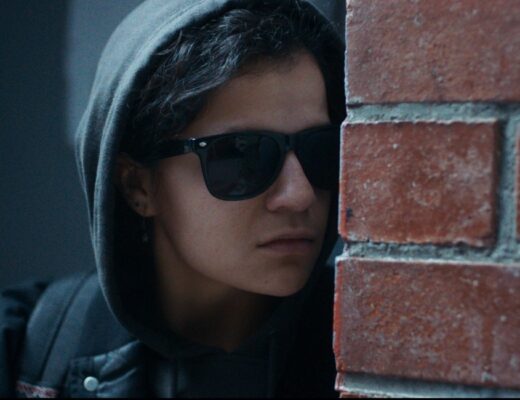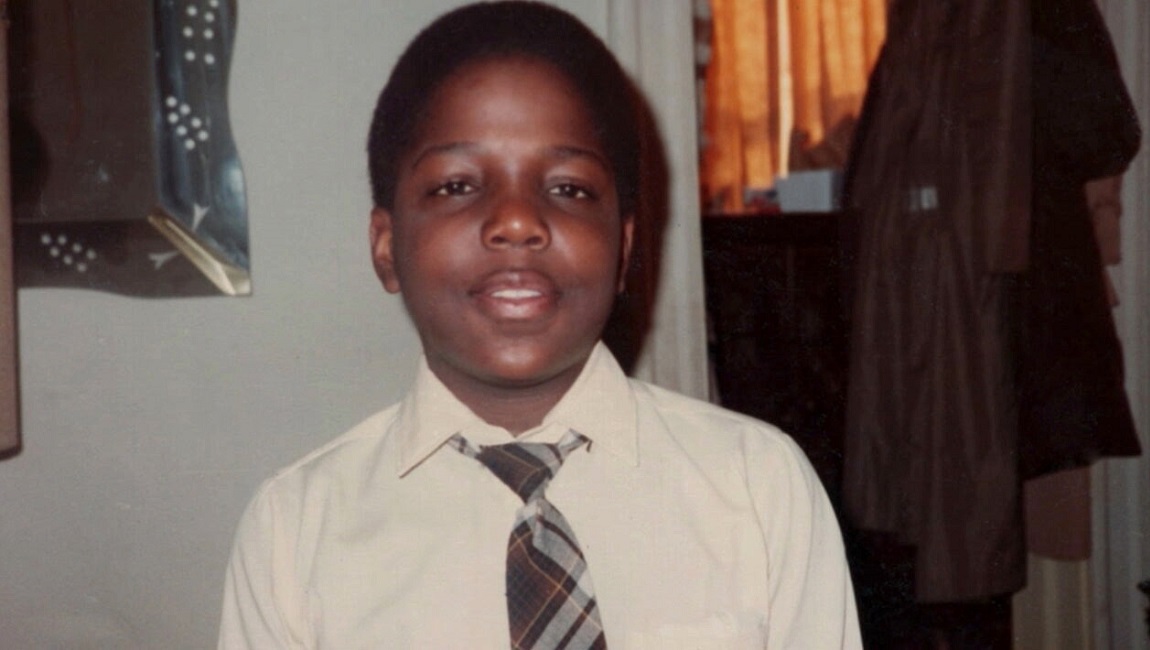Michel Gondry feels like an artist from another time, even if that time wasn’t very long ago. The only movie he directed with any real staying power, Eternal Sunshine of the Spotless Mind, has long been claimed by the Charlie Kaufman oeuvre, and it’s tough to imagine many are clamoring to revisit The Science of Sleep or Be Kind Rewind. But this is a problem of production as much as it is of a dated, quirky affect best left to the 2010s. Until recently, Gondry hadn’t made a feature since 2015’s Microbe & Gasoline, and he hasn’t made one you might have heard of (Mood Indigo) for over a decade. It’s the latter’s troubled, controlling, and totally directionless production that made Gondry take a step back and which now inspires his mild but honest return with The Book of Solutions.
Marc (Pierre Niney) is a familiar kind of director who has lost control of his film — even some of his closest collaborators have turned against it — and so he steals it from the studio and runs away with the few remaining faithful to the same small village in Cévennes where Gondry himself went to finish Mood Indigo. But without any outside interference, and now in possession of total control, he realizes that he cannot bear to face the four-hour version of this already diffuse-sounding project, literally titled Anyone, Everyone, and so must contrive any way possible to avoid watching it, all under the guise of inspiration and creativity. He tells his put-upon editor, Charlotte (Blanche Gardin), to re-edit the film backward, starting from the last scene, and later tries to convince her to do so in his editing bay-cum-truck (don’t ask, it’s too whimsical to bother explaining); then, he decides the film needs an animated interval that will split it into two perfectly reflecting halves. When that interval plays at the mid-point of this film, there’s the suggestion that it too might be palindromic in shape, but that ultimately seems to be beyond Gondry’s intentionally modest — in contrast with the film that inspired it — ambitions.
The Book of Solutions looks not exactly homemade, but certainly… cheaper. It’s plainly shot and flatly lit, and while that might sound like a criticism, it gives a certain directness to its lead character. Marc’s most frustrating qualities are laid bare; there is nothing to obscure or soften just how controlling or, frankly, annoying he is. Gondry even pushes against sympathy where he could easily find it: as Marc offsets the management of his very real neurodiversity (which, at the start of the film, he decides he no longer needs to be medicated for) onto his crew, we are invited to feel their frustration, which leads them to develop a routine for whose turn it is to chase Marc after another of his innumerable tantrums. There are moments of alleviation that help us to understand how anyone can tolerate Marc at all, such as his improvisation and abstract conducting of an orchestra, whose only starting point is a half-remembered melody he hums. Sometimes, his stupid, pointless distractions converge into some kind of brilliance. It’s absurd, it’s funny, but it’s also kind of beautiful and uninhibitedly artistic. But, of course, these moments of true inspiration (or lucky alignment) do not break the broader cycle.
And quickly, the film feels like it’s spinning in place. This is really an inevitable fact of the premise — and also due to Gondry’s choice not to build a farcical complexity to Marc’s distractions, leaving them straightforward and bare — and while it makes Marc, and by extension the film itself, boring, it makes them boring in the way people really are. Most of us struggle with the same basic problems in the same basic ways over and over again. It’s not very cinematic and it doesn’t fit neatly into a conventional three-act structure of a Hollywood screenplay, but that doesn’t make it any less authentic.
The problem, then, is that Gondry isn’t quite able to let those conventions go, even if The Book of Solutions pushes right up against their limits. And so, in the film’s final 20 minutes, the director throws a series of contrivances and interceptions at Marc, hoping that one of them will cause some miraculous change, until all he can do is recede into pure fantasy. Specifically, we encounter the familiar fantasy of the manic pixie dream girl, whose Oedipal roots permeate Gondry’s whole filmography: a sexy mother (Camille Rutherford, thanklessly) who suddenly appears as Marc’s savior to sleep with him and to (literally) clean his apartment — she is so absent an inner life, with only an outer sheen of quirkiness, that Marc/Michel can fill her entirely with his self and seed (again, literally). Marc, though newly empowered, still manages to escape seeing his film at its premiere. Or to be more precise, Gondry whimsically pulls him from the film’s world altogether, leaving behind an absurd, meaningless husk: a world where the audience claps for Mood Indigo (or its stand-in). In reality — and in the world that Gondry was rendering before this terrible pivot — Mood Indigo was pulled after a disappointing premiere and re-edited for its US release a few months later.
Originally published as part of Rendez-Vous with French Cinema 2024.







